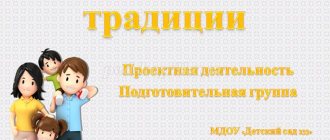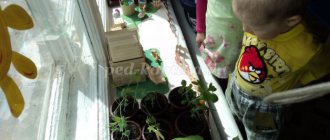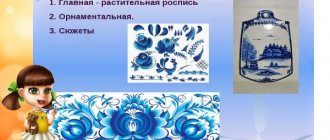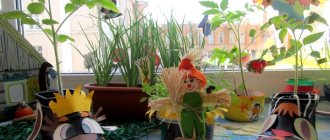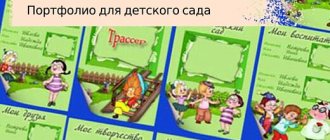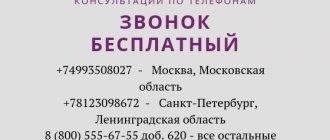Project on interaction between a kindergarten and a children's library.
Project
on the interaction of a kindergarten with a children's library.
Relevance:
A modern person cannot be considered cultured if he does not expand his knowledge and does not form his spiritual essence by reading books. It is in them that the centuries-old wisdom of mankind is contained. Modern children prefer to spend their free time watching TV shows and playing computer games to the detriment of reading books. In the age of information technology and the rapid development of the global information network, the importance of the book and its deep and thoughtful reading should in no way be diminished. Thus, one of the forms of organizing work on the socialization of a child’s personality was interaction with the library.
The mission of libraries is to, using all available resources, provide children with optimal conditions for cultural development, formation and satisfaction of their educational, communicative and other needs, in other words, to create an environment for the development of the child through reading, books and other types of materials that meet his gender, age, sociocultural and individual characteristics.
Together with library staff, we discussed the goals and objectives of the upcoming work. We developed a plan for joint activities, clarified the specifics of conducting direct educational activities, excursions, leisure activities, both in kindergarten and at the library, and the possibility of using the library’s book fund for classes with preschoolers in preschool educational institutions and in the families of pupils.
Objective of the project:
Formation of an integral sociocultural system of interaction between preschool educational institutions and the children's library Objectives:
Expand the creative interaction of preschool educational institutions with cultural institutions to create a unified sociocultural pedagogical system.
2. Implement an integrated approach to aesthetic education and the formation of artistic and creative abilities in the “child-teacher-parent” system.
3. Contribute to the development of the spiritual and moral culture of participants in the educational process.
Project type: (
educational and social-educational)
Project participants:
preschool teachers, parents, students, children's library staff
Forms of succession:
- excursions to the library;
- acquaintance and interaction with the library;
- visit to the library mini-museum;
- exhibitions of drawings and crafts;
- participation in theatrical activities
- joint holidays;
Project stages
Preparatory stage
Goal: determining the goals and forms of interaction with the children's library
- analysis of social objects to determine the feasibility of establishing a social partnership;
- establishing contacts with the organization
- determination of areas of interaction, deadlines, goals and specific forms of interaction
Practical stage
Goal: implementation of cooperation with the children's library
Tasks:
- Drawing up agreements on creative cooperation between a kindergarten and a children's library.
Drawing up a plan for joint activities for the academic year
| № | month | Events | responsible | |||
| 1 | September | “House of Books” (excursions to the library, introduction to the profession of a librarian) | Librarian, educators | |||
| 2 | October | Autumn holiday. "Autumn leaf fall." Let's draw autumn to the music. | Librarian, educators | |||
| 3 | november | “Visiting Grandfather Korney” (quiz based on the works of K.I. Chukovsky) | Librarian, educators | |||
| 4 | December | "Santa Claus's Birthday" | Librarian, educators | |||
| 5 | January | “Once on a quiet evening the girls were wondering...” | Librarian, educators | |||
| 6 | February | For Defender of the Fatherland Day: | Librarian, educators | |||
| 7 | March | “There is no one in the world sweeter than mommy” | Librarian, educators | |||
| 8 | April | “Knizhkina Hospital” - book repair. | Librarian, educators | |||
| 9 | May | “Holiday with tears in our eyes” (exhibition of children’s drawings dedicated to Victory Day.) “Remember the rules of the road” (quiz) | Librarian, educators | |||
| 10 | June | |||||
| 11 | July | “The fairy tale is a lie, but there is a hint in it...” | ||||
| The final stage Target: summing up the results of social partnership. Tasks of this stage:
| ||||||
Pisarenko M.N. leading specialist of the children's reading room of the West Kazakhstan OBDYu named after. Kh. Yesenzhanova
Working with preschoolers is a very interesting and serious matter. After all, it is at this tender age that interest in books awakens. But in the area of access to library services, the child is entirely dependent on adults. Does every parent take their child to the library? Of course not! Some people prefer to buy bright, colorful children’s books themselves and read them at home, while others don’t pay any attention to reading at all.
Therefore, a more acceptable form of introducing preschoolers to reading at present is the cooperation of libraries with preschool institutions.
Our West Kazakhstan Regional Library for Children and Youth named after Kh. Yesenzhanov has been collaborating with kindergartens in the city of Uralsk for several years. We try to foster an interest in reading, instill a love of books, and convince parents of the importance of family reading.
Particularly close cooperation takes place with the Sholpan kindergarten, which has been working under the Cultural Heritage program since 2008. With Kazakhstan gaining independence, national self-awareness has increased and cultural traditions are being revived. Therefore, there was a need for a thorough and deeper acquaintance of children with the spiritual values of their people. And this happens primarily through folk art, fairy tales, and folklore.
A good library tradition is close friendship with writers. A real “Poetry Festival” was a meeting between local writer Kairat Zhumagaliev and children from six kindergartens in the city. A competition was organized between the children for the best reading of his poems. The author was very grateful to the children for such a holiday and in memory of this meeting he donated his books to the kindergartens.
In memory of the local children's writer Kadyr Myrzaliev, a poetry hour was held with the Sholpan kindergarten, where the children recited his poems. The chairman of the foundation, K. Myrzalieva, gave the kindergarten CDs with poems by their favorite poet.
We try to cultivate an interest in reading, instill a love for books through the following methods of work: loud readings with a discussion of the actions of the heroes, games, quizzes, conversations about their native land, correspondence excursions around Kazakhstan, reviews of exhibitions and viewings of new books for children.
The most acceptable form of working with preschoolers is loud reading. They take place not only in libraries or kindergartens, but also in public gardens and recreation parks. We think these are ideal places to sit down and get to know your child and read to him. Indeed, often in our time there are families where there are no books in the house at all, and a small child has no idea what they are.
How many wonderful stories, poems about family, about love for parents we use for reading out loud! Children's writers K. Zhumagaliev, K. Myrzaliev, A. Barto, S. Marshak and others help us with this. We read a lot of books about how children take care of trees, flowers, animals based on the works of E. Moshkovskaya, I. Tokmakova, E. Elubaeva. Children love to listen to Kazakh fairy tales. They laugh merrily at the antics of Aldar Kose and Kozhanasyr. They love the mischievous poems of G. Oster and the stories of N. Nosov. This develops a sense of humor, mental flexibility, and intelligence in children.
After a loud reading, the librarian always tries to have a conversation with the children about what they read, respecting their desire to share their impressions.
Reading can be turned into a fun game, especially if toys are involved. We use this method in working with younger groups in kindergarten. First, our toy plays the role of a passive listener and sits on a chair next to the children, and then the librarian makes it a participant in the plot that is described in the story or poem. This method makes it possible to give the children the opportunity to master the piece they listened to on a more emotional background.
This summer, an unconventional book exhibition “Happy Book” was organized for children in the children's reading room. Here, along with books, on the shelves were candies “Little Red Riding Hood”, “Three Bears”, “Gulliver”, “The Little Mermaid”, “Mowgli”, chocolates “Alyonushka”, “Fairy Tales of Pushkin”, a box of chocolates “The Golden Cockerel”. The kids were surprised: the candies and the books had the same names! These are truly happy books, because they are read from generation to generation, because confectionery factories name their products in honor of them.
One of the most interesting forms for children to express themselves creatively is matinees. Every year, the Nauryz holiday takes place within the library’s walls. Not only the script is thought through, but also the decoration of the hall: balloons, soft toys, ribbons, flags, etc. help make the holidays joyful and kind. Preschool children, in turn, prepare for the matinee with great responsibility.
Together with the teachers, they memorize poems and learn dances. This is how children become acquainted with the spiritual values of their people.
Not a single holiday is complete without theatrical performances. In our library at the mass department there is a puppet theater “Book”.
The first to invite the children to the fabulous Chitalia is the cheerful and mischievous Petrushka. Traveling with the children through the library, he introduces the kids to its inhabitants - books. Parsley makes the children laugh with jokes and jokes, invites them to talk about kindergarten and home reading, about fairy tales.
Preschoolers still learn about the world through play. And we try through theatrical performances, through dolls, to convey the content of well-known fairy tales and stories by children's writers. And sometimes even understand complex concepts. For example, the fairy tale “Kolobok – a citizen of a fairy-tale state” will help you understand what rights and obligations are on Constitution Day.
Activists of the Kniga theater enjoy playing for children. How nice it is for them to see smiles, a sparkle of admiration in the eyes of little spectators! They know that their work behind the screen is highly valued.
Preschoolers themselves are happy to become artists. Staging a performance is a serious matter, but it is still a game with dolls. And the guys enthusiastically begin to voice the positive and negative characters of the fairy tale. As a result, the child’s vocabulary is activated, the culture of speech is improved, and a creative atmosphere of cooperation develops between the children.
Our library provides not only work with children, but also with parents, using every opportunity for this. Even when librarians appear on television and radio, they use airtime to attract preschoolers, their parents, and grandparents to the library. Much attention is paid to individual work with adults. The librarian will always give advice: which book is best to read for a given age, how to read it correctly, what to pay attention to, how to use illustrations while reading, etc.
Meetings with parents take place both within the library and at parent-teacher meetings. Here we try to convey to adults that children need to be developed from the first days of life. We cite as an example the book of the Japanese teacher Masaru Ibuka “After Three It’s Too Late”, who believes that the capabilities of a child’s brain, being unclaimed before the age of 3, fade away. Many young parents don’t even know about it and wait until their kids are older to start studying. And time goes by. This way, the most favorable period is missed, when the child begins to develop intelligence, logic, imagination, and speech. At this time, it is so necessary to talk to the child, read to him out loud, and memorize poems.
Most parents have a low level of information about children's literature. How to raise a reading child? How to choose the best children's books
for family reading? They received answers to these questions at the presentation of the exhibition.
ki "Circle of books for family reading."
Together with educators we are holding a “Specialist Day” with an exhibition and viewing of professional and reference literature on guiding children’s reading, knowledge
com with the latest children's publications.
In conclusion, I would like to say that it is no coincidence that we have placed special emphasis on cooperation. In our opinion, in the matter of early familiarization of a child with books, it is important that librarians, educators and parents are like-minded people. Otherwise, how else can we help a preschooler find himself in a space where there are books, toys, and multimedia resources?
